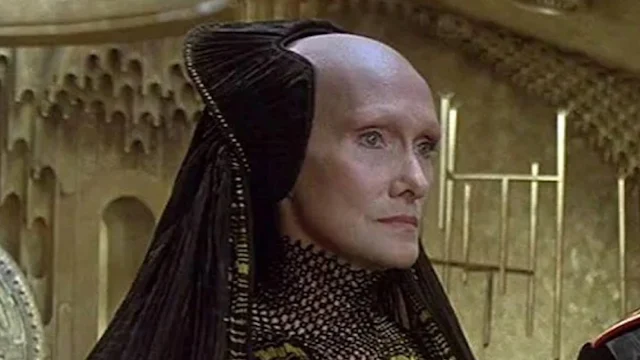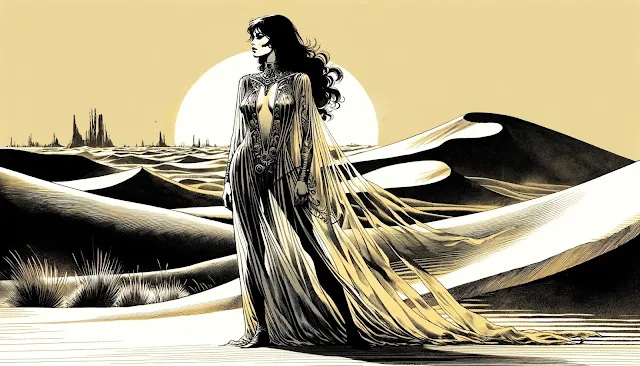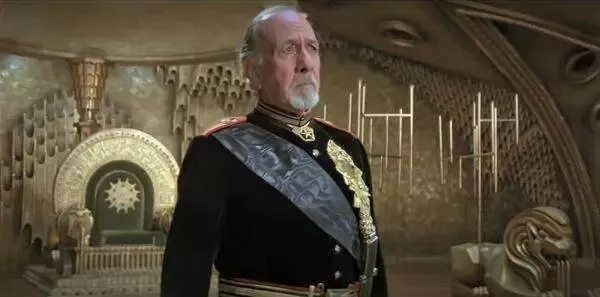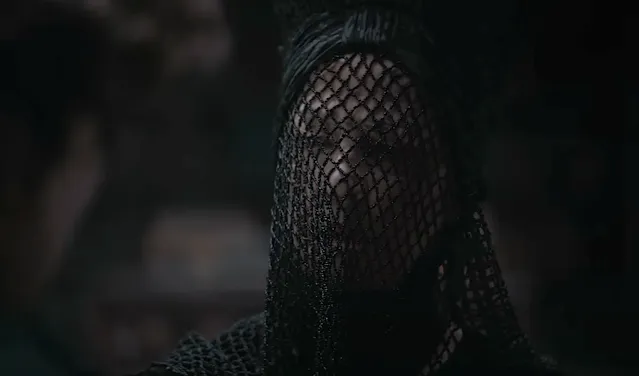A central theme, rather than a simple "rediscovery," is the fierce struggle for *survival* and the potential *transformation* of humanity in the face of near annihilation. With their traditional power structures shattered and Rakis destroyed, the Bene Gesserit under Mother Superior Darwi Odrade retreat to their secret stronghold, Chapterhouse. Here, they embark on a monumental gamble: terraforming the planet into a new Dune, complete with sandworms smuggled from the ruins of Rakis, hoping to secure their future and control the spice once more. They grapple with the legacy of Leto II's Golden Path – not questioning its past reality, but desperately trying to navigate its chaotic results and ensure humanity's ultimate survival, potentially through paths unforeseen even by the God Emperor himself. The Bene Gesserit must evolve or perish.
The Bene Gesserit, once seemingly invincible manipulators, are depicted pushed to the brink of extinction. Their ancient wisdom and control are insufficient against the sheer ferocity and numbers of the Honored Matres. Odrade leads a Sisterhood forced into radical adaptation, relying on unpredictable assets: the new ghola of Bashar Miles Teg with his amplified abilities, Sheeana and her connection to the sandworms, the unpredictable Duncan Idaho ghola embodying millennia of human experience, and their risky integration of Murbella. Their internal conflicts and the desperate measures they employ highlight the profound challenges they face in a universe violently rejecting the old forms of control.
Critical reception to "Chapterhouse: Dune" remains varied. Many praise its thrilling pace, the culmination of intricate plot threads from *Heretics*, and its profound exploration of survival and adaptation under extreme pressure. Others criticize the density of its philosophical musings and, most notably, its abrupt cliffhanger ending, which left the fates of key characters and the ultimate resolution of the Bene Gesserit/Honored Matre conflict unresolved following Frank Herbert's death.
"Chapterhouse: Dune" masterfully weaves together established Dune themes while propelling them in new directions. The cyclical nature of history is brutally evident as the Bene Gesserit attempt to recreate Dune, potentially trapping themselves in old patterns, even as the Honored Matres represent a chaotic, destructive force seemingly breaking all cycles. The desperate need to escape these cycles, a core tenet of the Golden Path, hangs heavy over the narrative.
Memory remains paramount, not just through the Bene Gesserit's Other Memory, but embodied in the Duncan Idaho ghola and the potential genetic heritage carried by Scytale's capsule. Preserving the lessons of the past while forging a new future is the tightrope the Sisterhood must walk. Accessing and understanding memory becomes a vital tool for survival against the Honored Matres, who seem driven by primal urges rather than historical reflection.
The corrupting nature of power is explored through the Honored Matres' tyranny and the Bene Gesserit's necessary ruthlessness. Odrade and her council make agonizing choices, sacrificing individuals and potentially compromising their ethics for the survival of the Sisterhood and, they believe, humanity itself. The novel questions whether any organization wielding such power can avoid corruption, especially when locked in a life-or-death struggle.
Herbert's worldbuilding remains exceptional, expanding the known universe with the concept of the Scattering and the terrifying power dynamics emerging from it. The transformation of Chapterhouse planet, the final sandworms, the complex interplay between the Bene Gesserit factions (including those integrating Honored Matre ways), and the lingering presence of the Tleilaxu through Scytale create a rich, dangerous, and evolving universe.
In conclusion, "Chapterhouse: Dune" is a tense, provocative, and ultimately unresolved finale to Frank Herbert's original saga. It's a story of desperate survival, radical adaptation, and the frightening, exhilarating prospect of a humanity finally cut loose from all anchors, plunging into an unknown future. Its complex characters, high-stakes conflict, and profound thematic explorations cement its status as essential science fiction, leaving readers to ponder the unwritten next chapter of the human story in the vastness of the Dune universe.















.webp)






